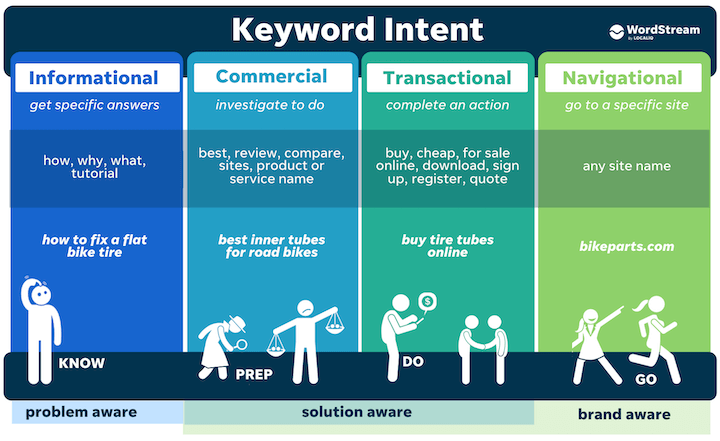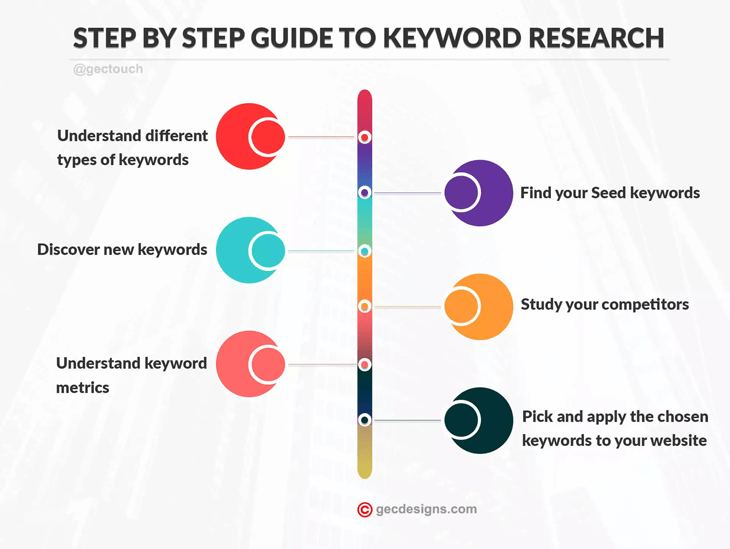Uncover the secret to driving traffic to your website with this easy step-by-step guide on finding top SEO keywords!

Image courtesy of via DALL-E 3
Table of Contents
Introduction to SEO Keywords
In today’s digital world, having a website is essential for businesses and individuals to showcase their products, services, or ideas. However, just having a website is not enough. You want people to be able to find your website easily when they search online, and this is where SEO keywords come into play.
What Are SEO Keywords?
SEO keywords are like magic words that help connect your website with people who are searching for exactly what you offer. These keywords are specific words or phrases that you strategically place on your website to make it more likely to appear in search engine results when someone types in those words.
Why SEO Keywords Matter
Imagine you have a bakery and you want more people to know about your delicious cupcakes. By using the right keywords like “best cupcakes in town” or “flavorful bakery treats,” you can attract more visitors to your website who are looking for exactly what you have to offer. This is why choosing and using the right keywords is crucial for getting more people to discover your website.
Brainstorming Keywords for Your Website
When it comes to optimizing your website for search engines, one of the first steps is to brainstorm relevant keywords that will attract your target audience. Here are some strategies to help you come up with the right keywords for your website:
Think About Your Website’s Main Topic
Start by considering the main topics or themes of your website. What are the key subjects you want to be known for? These can serve as the foundation for your keyword brainstorming. For example, if you have a website about healthy eating, your main topics could include recipes, nutrition tips, and meal planning. Use these topics to generate related keywords that people might use to search for information in your niche.
Get Inspiration from Competitors
Take a look at other websites in your industry or niche to see what keywords they are using. This can give you insight into what terms are popular and relevant to your audience. Make a list of keywords that your competitors are targeting and consider how you can adapt them to fit your website’s unique offerings. While you don’t want to copy your competitors outright, analyzing their keyword strategy can help spark ideas for your own keyword brainstorming.
Using Keyword Research Tools
When it comes to finding the best keywords for your website, there are tools out there to make the process easier and more effective. These keyword research tools can provide valuable insights into what people are searching for and how competitive certain keywords are. Let’s explore how you can use these tools to boost your website’s visibility and attract more traffic.

Image courtesy of www.searchlogistics.com via Google Images
Free Keyword Research Tools
One of the most popular free keyword research tools is Google Keyword Planner. This tool allows you to enter keywords related to your website and see how often they are searched for, as well as get suggestions for other relevant keywords. Another great free tool is Ubersuggest, which provides keyword ideas, search volume data, and even insights into your competitors’ keywords.
How to Use These Tools
Using these tools is easier than you might think. Simply enter a few keywords related to your website or topic of interest, and the tool will generate a list of related keywords along with valuable data like search volume and keyword difficulty. Take some time to explore these suggestions and select the ones that best fit your website’s content and goals.
Analyzing Keyword Competitiveness
When you search for something on the internet, have you noticed that some websites appear at the top of the results, while others are harder to find? This is where keyword difficulty comes into play. Keyword difficulty refers to how hard it is to rank for a specific word or phrase on search engines like Google. Keywords with high difficulty are more competitive, meaning many websites are trying to rank for them, making it tough to get your site to show up at the top.
Balancing Difficulty and Relevance
Choosing the right keywords for your website is like finding the sweet spot between what your site is about and how tough it is to compete for certain words. You want to pick keywords that are both relevant to your content and not too difficult to rank for. For example, if your website is about homemade crafts, a keyword like “easy DIY crafts for kids” might be easier to compete for than a general term like “crafts.”
Exploring Long-Tail Keywords
Long-tail keywords are specific phrases that people use when searching for something online. Unlike shorter, more general keywords, long-tail keywords are longer and more detailed. For example, instead of searching for “shoes,” someone might search for “running shoes for women with high arches.” These longer, more specific phrases help narrow down search results and make it easier for people to find exactly what they’re looking for.

Image courtesy of www.wordstream.com via Google Images
Why Long-Tail Keywords Are Important
Using long-tail keywords on your website can have several benefits. Since these keywords are more specific, they can attract highly targeted traffic to your site. This means that the people who land on your website through long-tail keyword searches are more likely to be interested in what you offer. Additionally, long-tail keywords are often less competitive than broader keywords, making it easier for your website to rank higher in search engine results.
Evaluating Keyword Performance
Once you have selected and implemented keywords on your website, it’s crucial to track their performance to see which ones are driving traffic effectively. This step will help you understand what is working well and what might need adjustment in your keyword strategy.
Using Analytics Tools
One of the best ways to evaluate keyword performance is by using analytics tools like Google Analytics. These tools provide valuable insights into how visitors are finding your site, which keywords are leading to clicks, and how users are engaging with your content.
Understanding Metrics
It’s essential to understand key metrics that reflect the success of your chosen keywords. Metrics like click-through rates (CTR) show how many users clicked on your website link after searching for a particular keyword. By analyzing these metrics, you can determine which keywords are driving the most traffic and adjust your strategy accordingly.
Refining Your Keyword Strategy
When it comes to refining your keyword strategy, one essential aspect is analyzing your website’s traffic. By examining the keywords that are driving the most visitors to your site, you can gain valuable insights into what is working and what may need adjustment. Look for patterns in the search terms that bring in the most traffic and consider how you can optimize your content further around these keywords.

Image courtesy of aioseo.com via Google Images
Staying Up-to-Date
SEO is an ever-evolving field, with search engine algorithms constantly changing and user search behavior evolving. It’s crucial to stay up-to-date with the latest trends and best practices in keyword strategy. Keep an eye on industry news, attend webinars, and follow reputable SEO blogs to ensure you are aware of any shifts in keyword trends or algorithm updates. By staying informed, you can continuously refine and improve your keyword strategy to stay ahead of the competition.
Keyword Placement on Your Website
In order to optimize your website for search engines, it’s essential to strategically place your SEO keywords throughout your content. Here are some tips on where and how to effectively use keywords on your website:
Using Keywords in Content
When creating articles, blog posts, or any other type of content for your website, make sure to naturally include your chosen keywords. Avoid overstuffing your content with keywords, as this can negatively impact your ranking. Instead, focus on providing high-quality and engaging content that incorporates your keywords seamlessly.
Keywords in Titles and Headers
Titles and headers play a crucial role in helping search engines understand the relevance of your content to user queries. Including your keywords in titles and headers can signal to search engines what your content is about. This can improve the chances of your website appearing in relevant search results.
Conclusion
After going through this step-by-step guide on how to find SEO keywords for your website, you now understand the importance of SEO and how keywords can significantly impact your website’s visibility and traffic. By implementing the right keywords, you can attract more visitors and potentially grow your online presence.

Image courtesy of www.linkedin.com via Google Images
Remember, SEO keywords are the key to unlocking your website’s potential reach. By brainstorming relevant keywords, utilizing keyword research tools, analyzing competitiveness, exploring long-tail keywords, evaluating keyword performance, refining your strategy, and strategically placing keywords on your website, you can improve your website’s search engine ranking and attract more organic traffic.
It’s essential to stay updated with the latest trends in keywords and SEO practices to ensure your website remains relevant and competitive in the ever-evolving digital landscape. By regularly monitoring your keyword performance and making necessary adjustments, you can optimize your website for success.
So, start implementing these strategies today and watch your website soar to new heights through the power of SEO keywords. Good luck on your keyword journey!
Want to turn these SEO insights into real results? Seorocket is an all-in-one AI SEO solution that uses the power of AI to analyze your competition and craft high-ranking content.
Seorocket offers a suite of powerful tools, including a Keyword Researcher to find the most profitable keywords, an AI Writer to generate unique and Google-friendly content, and an Automatic Publisher to schedule and publish your content directly to your website. Plus, you’ll get real-time performance tracking so you can see exactly what’s working and make adjustments as needed.
Stop just reading about SEO – take action with Seorocket and skyrocket your search rankings today. Sign up for a free trial and see the difference Seorocket can make for your website!
FAQs
What if My Keywords Aren’t Working?
If you find that the keywords you have selected are not bringing in the desired traffic to your website, don’t worry! You can always make changes and try new keywords. One approach you can take is to revisit your keyword research and choose different terms that might be more relevant to your target audience. Additionally, you can look at your competitors’ keywords for inspiration and see if there are any trending topics that you could incorporate into your keyword strategy.
How Often Should I Update Keywords?
It’s essential to regularly review and update your keywords to keep up with changes in trends, search behavior, and your website’s content. Ideally, you should revisit your keyword strategy at least every few months to ensure that you are still targeting the right audience. Also, consider analyzing the performance of your keywords using tools like Google Analytics to see which ones are driving the most traffic to your site and make adjustments accordingly.







